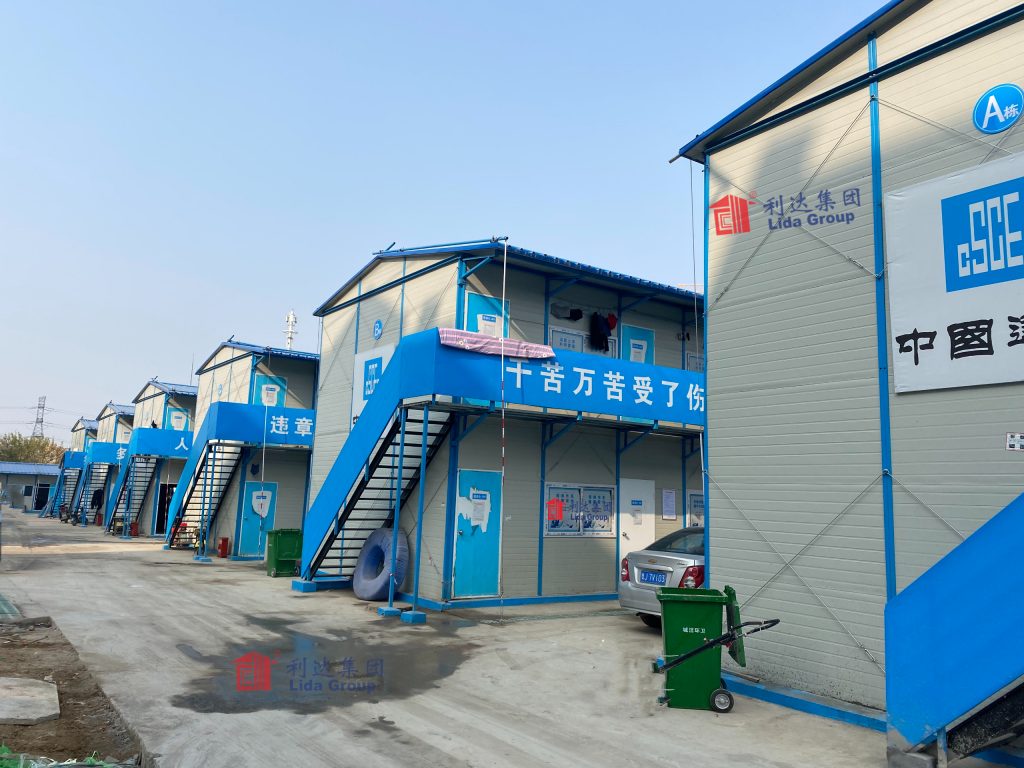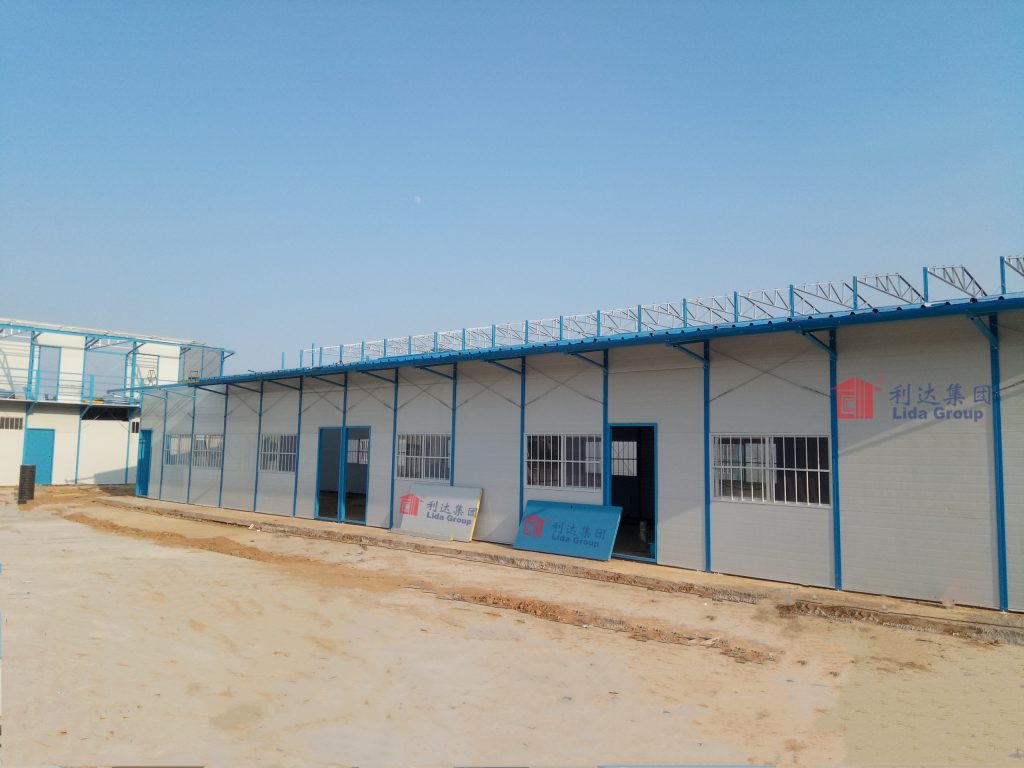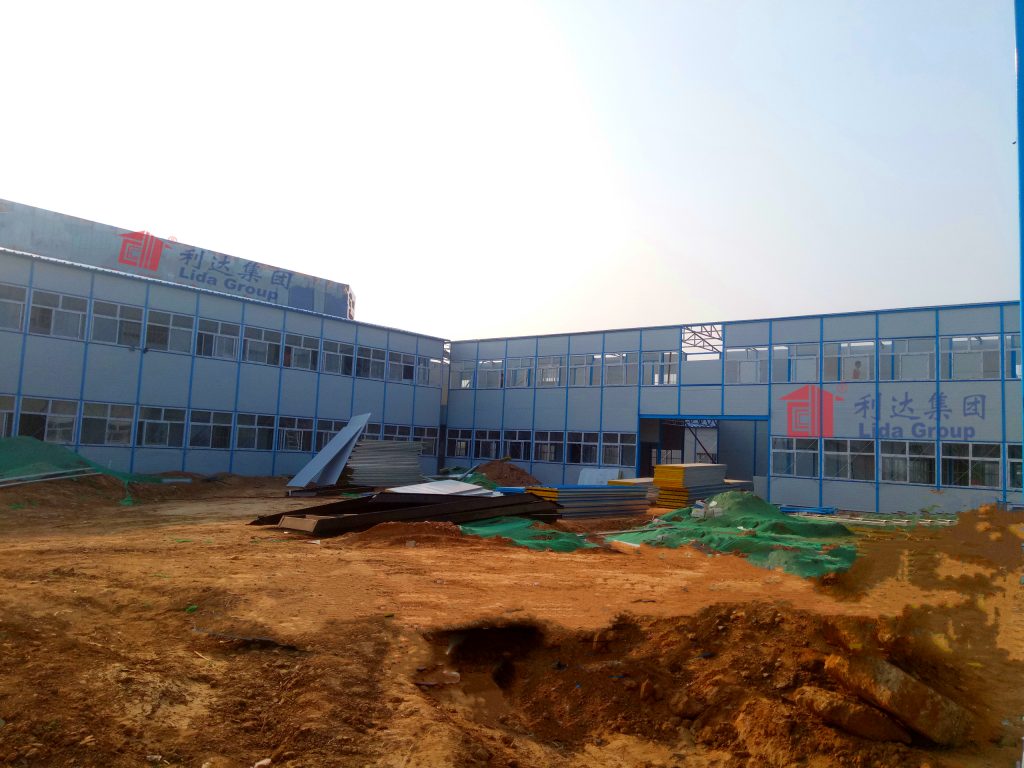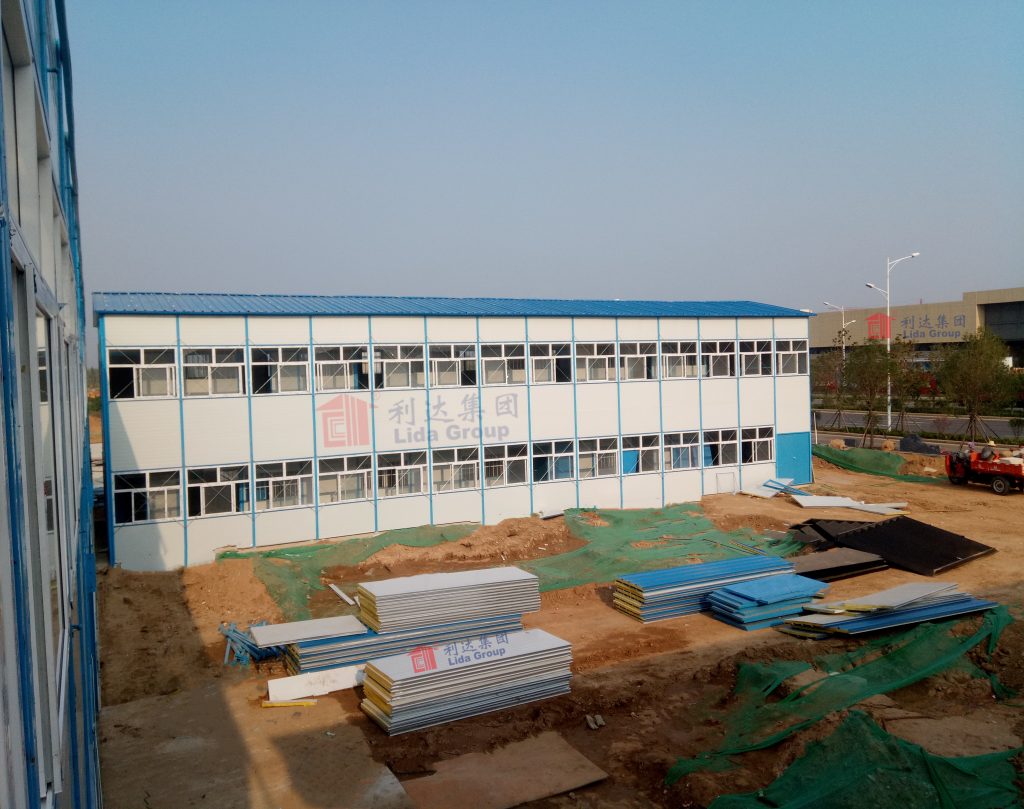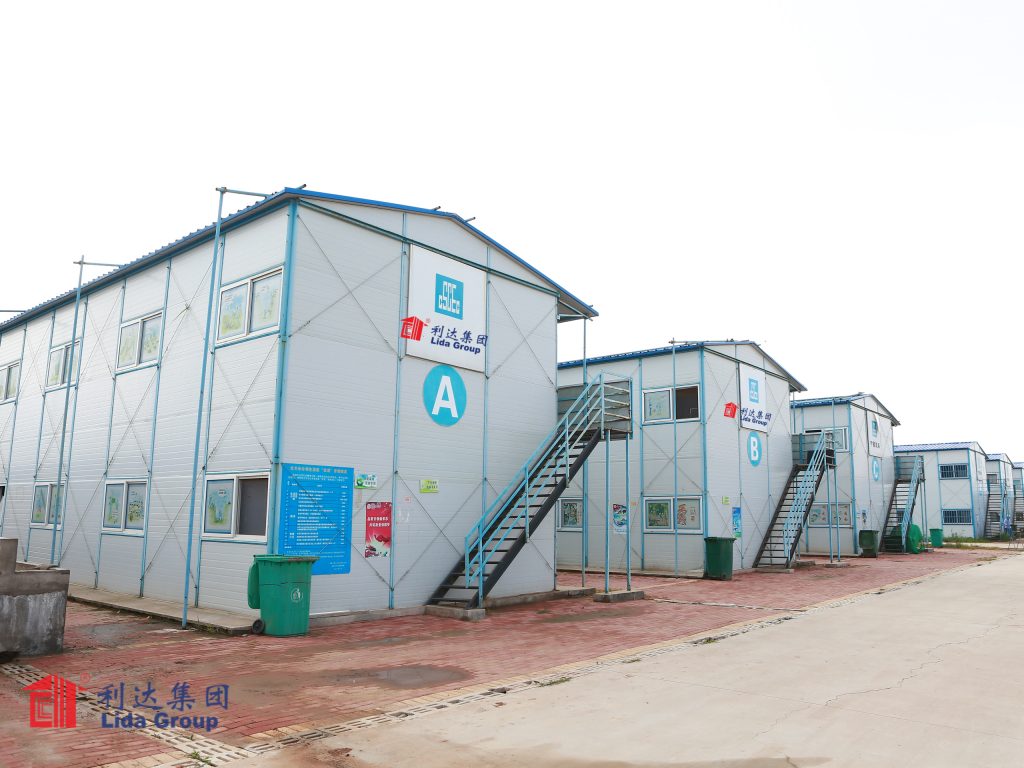Introduction to Lida Group and Its Mission
Lida Group, a pioneering company in the field of prefabricated construction, has been at the forefront of disaster response efforts for over two decades. Founded with a vision to provide rapid, reliable, and high-quality temporary housing solutions, Lida Group has consistently demonstrated its commitment to innovation and social responsibility. The company’s core mission is to alleviate human suffering caused by natural disasters through the deployment of state-of-the-art prefab houses equipped with advanced mobile sandwich panel systems. These structures are designed not only to meet immediate shelter needs but also to offer comfort, safety, and sustainability to those affected.
In times of crisis, speed and efficiency are paramount. Recognizing this, Lida Group has developed a unique approach that allows it to deploy high-quality prefab houses within an unprecedented timeframe of 72 hours. This capability sets them apart from traditional construction methods, which often require weeks or even months to deliver comparable results. By leveraging cutting-edge technology and streamlined logistics, Lida Group ensures that critical resources reach disaster-stricken areas swiftly, thereby enhancing the resilience and recovery capacity of affected communities.
The significance of Lida Group’s contribution cannot be overstated. In addition to providing immediate relief, their prefab houses play a crucial role in restoring normalcy to disrupted lives. They serve as temporary homes, schools, medical facilities, and community centers, all of which are essential for rebuilding both physical infrastructure and social cohesion. Moreover, these structures are built using environmentally friendly materials and energy-efficient designs, contributing to long-term sustainability goals. Through its dedication to excellence and innovation, Lida Group continues to make a profound impact on global disaster response efforts, offering hope and support to countless individuals and families in need.
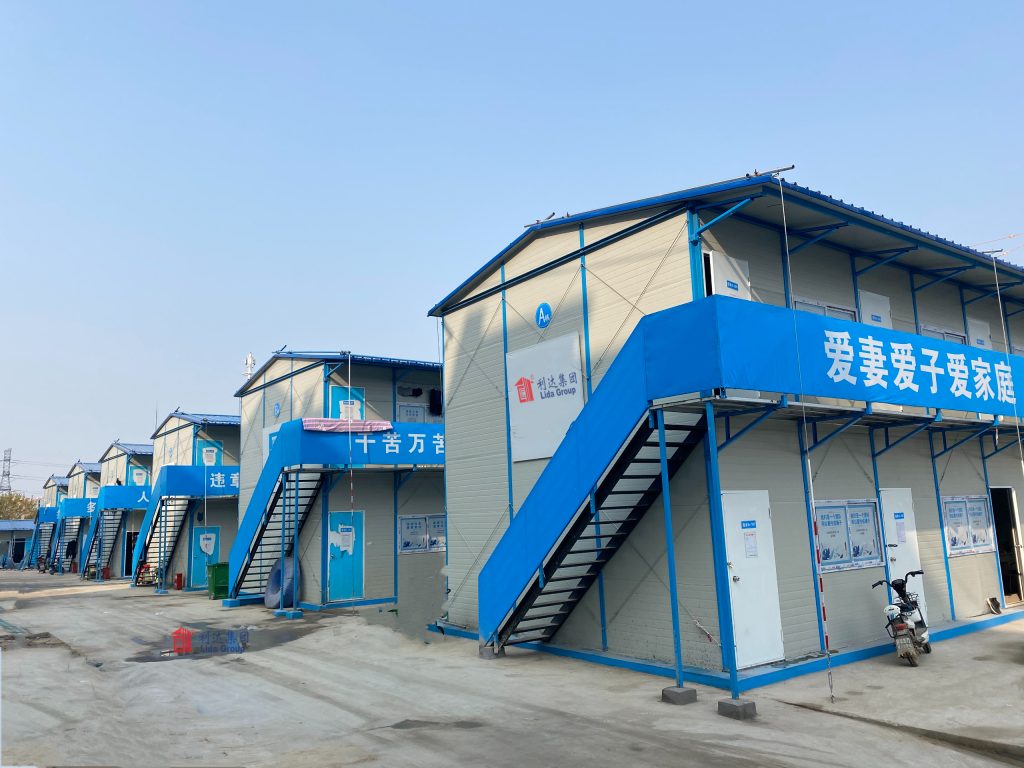
Rapid Deployment: The Key to Immediate Disaster Relief
One of the most remarkable achievements of Lida Group lies in its ability to deploy high-quality prefab houses within just 72 hours of receiving a request. This unparalleled speed is made possible through a meticulously planned process that integrates advanced technology, efficient logistics, and a highly skilled workforce. The journey begins with the receipt of an urgent request for assistance, typically following a natural disaster such as an earthquake, flood, or hurricane. Upon confirmation of the details, including location, number of units required, and specific needs, Lida Group activates its rapid deployment protocol.
The first step involves mobilizing the production line. Utilizing automated manufacturing processes, the company can quickly fabricate the necessary components for the prefab houses. These include pre-cut steel frames, insulation panels, and other structural elements, all of which are produced with precision and durability in mind. Simultaneously, the logistical team coordinates transportation, ensuring that all materials are ready for shipment within hours. Thanks to strategic partnerships with local and international carriers, Lida Group can arrange for swift delivery to any part of the world.
Upon arrival at the disaster site, the assembly phase commences. Here, the true advantage of Lida Group’s mobile sandwich panel system becomes evident. These panels, composed of lightweight yet robust materials, are designed for easy handling and quick installation. Skilled technicians work around the clock, assembling the structures with minimal tools and maximum efficiency. The modular nature of the design allows for customization based on the specific requirements of each situation, whether it’s adding extra bedrooms, installing sanitary facilities, or incorporating renewable energy sources like solar panels.
Throughout the entire process, communication plays a vital role. Lida Group maintains constant contact with local authorities, NGOs, and affected communities to ensure that the deployment meets their needs accurately and efficiently. Regular updates and feedback loops help address any unforeseen challenges promptly, further enhancing the effectiveness of the operation.
This remarkable feat of deploying high-quality prefab houses in just 72 hours exemplifies Lida Group’s unwavering commitment to rapid disaster response. By combining innovative technology, efficient logistics, and dedicated personnel, they have created a model that not only saves time but also lives, offering immediate relief and hope to those in desperate situations.
Detailed Technical Specifications of Prefab Houses
Lida Group’s prefab houses are engineered with meticulous attention to detail, integrating a host of technical specifications that ensure both durability and comfort. At the heart of these structures lies the mobile sandwich panel system, a key component that provides exceptional strength and versatility. Each panel consists of multiple layers: an outer skin made from corrosion-resistant galvanized steel, a central core of high-density polyurethane foam for superior insulation, and an inner lining that enhances acoustic performance and thermal regulation. This multi-layered design not only guarantees structural integrity but also offers excellent resistance against harsh weather conditions, making the houses suitable for deployment in diverse climates and terrains.
The framework of the prefab houses is constructed using high-strength steel beams, which are precisely cut and welded to form a rigid skeleton capable of withstanding significant lateral loads. These beams are treated with anti-corrosion coatings to prolong their lifespan, even in humid or saline environments. Additionally, the use of standardized connectors simplifies assembly, allowing for rapid construction without compromising quality. Modular joints and fasteners enable seamless integration between different sections, facilitating customization and scalability according to the specific needs of each deployment.
Interior amenities are equally important in maintaining a comfortable living environment. Floors are insulated with moisture-resistant underlayment and finished with durable vinyl tiles that are easy to clean and maintain. Walls feature soundproofing materials that minimize noise pollution, creating a peaceful atmosphere inside the house. Windows are double-glazed and equipped with UV-protective films, ensuring optimal light penetration while minimizing heat transfer. Ventilation systems incorporate HEPA filters, providing clean air free from dust and allergens.
Energy efficiency is another critical aspect of Lida Group’s prefab houses. Solar panels integrated into the roof harness renewable energy, significantly reducing reliance on external power sources. A battery storage system stores excess energy, ensuring a continuous supply during periods of low sunlight. Rainwater harvesting systems collect and filter rainwater for domestic use, promoting sustainable water management practices. Waste management solutions, including composting toilets and greywater recycling systems, further enhance environmental sustainability.
In summary, Lida Group’s prefab houses combine advanced engineering techniques with thoughtful design features to create robust, adaptable, and eco-friendly living spaces. Their mobile sandwich panel systems, coupled with high-strength steel frameworks and comprehensive interior amenities, set new standards in disaster relief housing. These innovations not only provide immediate shelter but also contribute to long-term sustainability, making Lida Group’s prefab houses a beacon of hope and resilience in times of crisis.
User Feedback and Satisfaction Levels
From the perspective of actual users, Lida Group’s prefab houses have received widespread acclaim and recognition. Numerous testimonials highlight how these temporary shelters have dramatically improved the quality of life for disaster survivors. One particularly touching account comes from a family who experienced a devastating earthquake. They recounted how, prior to moving into one of Lida Group’s prefab houses, they had been forced to live in cramped and uncomfortable tents, where extreme temperatures and lack of privacy were daily struggles. “Now, we finally have a place to call home,” said one member of the family. “The house is warm in winter and cool in summer, and we no longer have to worry about leaks when it rains.”
Beyond basic comfort, the psychological benefits of having a stable and secure living environment cannot be overstated. Many residents reported feeling safer and more secure, which played a crucial role in their emotional recovery. For instance, a single mother with young children expressed her gratitude, noting that the prefab house provided a sense of normalcy amidst chaos. “My kids can now sleep peacefully at night, knowing they’re safe,” she shared. “It makes all the difference in helping us rebuild our lives.”
Community cohesion is another significant advantage of Lida Group’s housing solutions. Due to their modular design, multiple prefab houses can be easily connected to form larger communal spaces. This feature has fostered a strong sense of community among displaced populations. In one case, several families pooled resources to establish a small community center within their cluster of prefab houses. This center became a hub for sharing information, organizing activities, and supporting each other emotionally. Residents emphasized how this communal space helped maintain social bonds and mutual aid networks, which are essential for collective resilience and recovery.
Moreover, the adaptability of these structures has allowed for various uses beyond simple shelter. In some instances, parts of the prefab complexes were converted into makeshift schools and clinics, ensuring continuity of education and healthcare services. Teachers and healthcare workers praised the flexibility and functionality of these adapted spaces. “We were able to resume classes almost immediately thanks to the availability of these well-equipped classrooms,” noted a local teacher. Similarly, a doctor working in a converted medical facility highlighted the importance of having a hygienic and organized space to treat patients effectively.
Overall, user feedback underscores the transformative impact of Lida Group’s prefab houses. From enhancing personal comfort and security to fostering community spirit and supporting essential services, these temporary shelters have proven indispensable in disaster-stricken areas. Their multifunctionality and user-centric design have not only met immediate needs but also laid the groundwork for sustained recovery and redevelopment.
Broader Social Impact and Long-Term Benefits
The broader social impact of Lida Group’s prefab houses extends far beyond mere provision of temporary shelter; it encompasses the restoration of community structure, enhancement of educational opportunities, and promotion of economic stability. These structures serve as a cornerstone for rebuilding societal functions that are often severely disrupted by natural disasters. One notable example is the transformation of prefab complexes into community hubs where residents can gather, share resources, and support each other. These hubs facilitate the re-establishment of social networks, which are vital for emotional healing and collective resilience.
Education is another critical area where Lida Group’s contributions shine. In many disaster zones, schools are among the first infrastructures to be damaged or destroyed. To mitigate this disruption, Lida Group has successfully converted portions of their prefab units into temporary classrooms. These spaces not only provide a safe learning environment but also help maintain educational continuity for children whose schooling might otherwise be interrupted indefinitely. Testimonials from teachers and students alike emphasize the importance of these makeshift schools in preserving academic progress and instilling a sense of normalcy amidst adversity. As one teacher explained, “These prefab classrooms allow us to continue teaching, giving our students hope and a future.”
Healthcare facilities represent another essential service that Lida Group’s prefab houses can rapidly accommodate. By converting some units into temporary clinics, the company ensures that medical care remains accessible to affected populations. This adaptation is particularly crucial in the aftermath of disasters when existing health infrastructures may be overwhelmed or non-functional. Local doctors and nurses have lauded these converted units for their practicality and efficiency, enabling them to provide much-needed medical services without delay. The presence of these healthcare facilities helps prevent secondary crises such as disease outbreaks, thus safeguarding public health.
Economic recovery is another area where Lida Group’s prefab houses play a pivotal role. In the wake of disasters, unemployment rates often skyrocket due to the destruction of businesses and job loss. However, the flexibility and modularity of these structures allow them to be repurposed for various economic activities. For instance, in certain regions, clusters of prefab units have been transformed into small commercial districts, providing employment opportunities and stimulating local economies. This initiative not only helps restore livelihoods but also fosters a sense of purpose and dignity among affected individuals. A local entrepreneur who set up a small business in one of these converted units remarked, “Thanks to these flexible spaces, I was able to restart my business and support my family again.”
In summary, Lida Group’s prefab houses offer more than just temporary accommodation; they act as catalysts for broader social and economic recovery. By serving as multipurpose facilities that can adapt to various needs—from schools and clinics to community centers and small businesses—they lay the foundation for long-term resilience and development. These structures not only meet immediate survival needs but also empower communities to rebuild stronger and more sustainably, demonstrating the profound and lasting impact of Lida Group’s innovative solutions.
Future Directions and Continuous Improvement
Despite its impressive achievements, Lida Group remains committed to pushing the boundaries of what is possible in disaster response housing. Looking ahead, the company is focusing on several key areas to further enhance its offerings and broaden its impact. One major direction involves the integration of smart technologies into prefab houses. By incorporating Internet of Things (IoT) devices, Lida aims to create smarter living environments that can automatically adjust temperature, monitor air quality, and manage energy consumption. These advancements will not only improve comfort and convenience for inhabitants but also reduce operational costs and environmental footprints.
Another focus area is the development of more sustainable and eco-friendly materials. While current designs already utilize energy-efficient and recyclable components, Lida Group is exploring the potential of bio-based plastics and other renewable resources. These materials could offer superior performance characteristics while significantly lowering the carbon footprint associated with production and deployment. Additionally, optimizing supply chain management and reducing transportation-related emissions are priorities, ensuring that every stage of the prefab house lifecycle aligns with sustainability goals.
To achieve these ambitious objectives, Lida Group is actively engaging in collaborative research and development initiatives. Partnerships with leading universities, research institutions, and industry experts bring fresh perspectives and cutting-edge knowledge to the table. Furthermore, ongoing feedback from end-users and stakeholders informs continuous improvement efforts, ensuring that new developments address real-world needs effectively. Through relentless innovation and a steadfast commitment to excellence, Lida Group aims to redefine the future of disaster response housing, delivering solutions that are not only faster and more effective but also more sustainable and impactful.
Conclusion
In conclusion, Lida Group’s deployment of high-quality prefab houses with mobile sandwich panel systems represents a groundbreaking advancement in disaster response strategies. By achieving the remarkable feat of constructing and delivering these shelters within 72 hours, the company has significantly enhanced the efficiency and efficacy of emergency relief operations worldwide. The technical sophistication of these structures, combined with their user-centric design, ensures that affected populations receive not just temporary housing but a dignified and supportive environment conducive to recovery. The overwhelmingly positive feedback from users highlights the tangible improvements in quality of life, safety, and community cohesion facilitated by these innovative solutions.
Furthermore, the broader social impact of Lida Group’s prefab houses extends well beyond immediate relief. By transforming these structures into schools, clinics, and community centers, they play a pivotal role in restoring essential services and fostering long-term resilience. These multifunctional facilities are instrumental in maintaining educational continuity, providing healthcare access, and stimulating economic recovery, thereby laying a solid foundation for sustainable redevelopment.
Looking forward, Lida Group’s commitment to continuous improvement and innovation promises even greater strides in disaster response capabilities. The integration of smart technologies and the exploration of eco-friendly materials will undoubtedly elevate the performance and sustainability of these prefab houses. As the company continues to push technological boundaries and refine its offerings, it stands poised to set new benchmarks in the realm of disaster relief housing.
Ultimately, Lida Group’s dedication to excellence and social responsibility underscores its pivotal role in mitigating the impacts of natural disasters globally. Through their visionary approach and unwavering commitment, they provide not only physical shelter but also hope and empowerment to countless individuals and communities in their darkest hours.
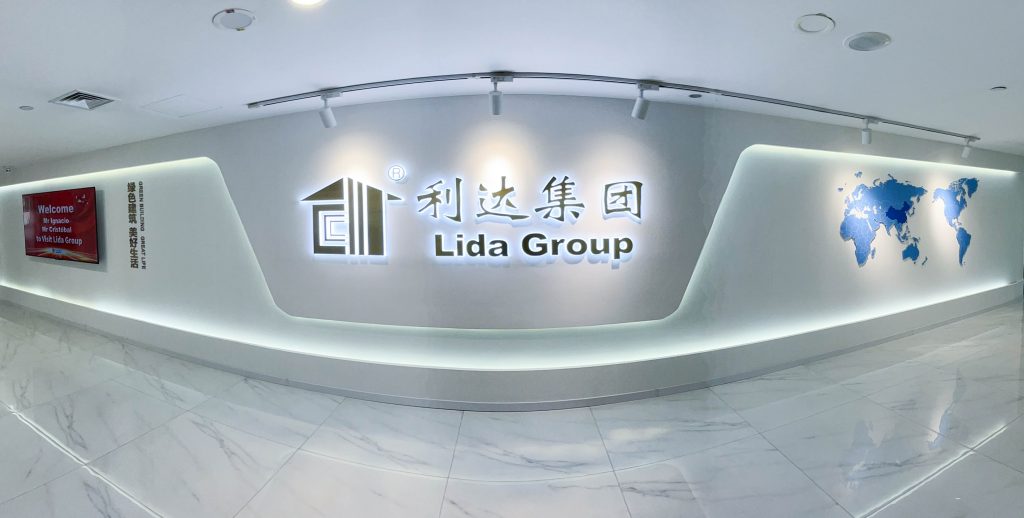
Related news
-
Luxury Meets Mobility: Lida Group's High Quality Prefab House Range Features Premium SANDWICH PANEL HOUSE Construction
2025-07-16 17:15:57
-
Arctic to Desert Use: Lida Group's Mobile Prefab Houses Utilize Sandwich Panel Technology for Climate-Adaptive Performance
2025-07-16 15:47:21
-
Construction Industry Shift: Major Firms Adopt Lida Group's Mobile SANDWICH PANEL HOUSE Solutions for Temporary Site Offices
2025-07-15 15:53:33
contact us
- Tel: +86-532-88966982
- Whatsapp: +86-13793209022
- E-mail: sales@lidajituan.com


